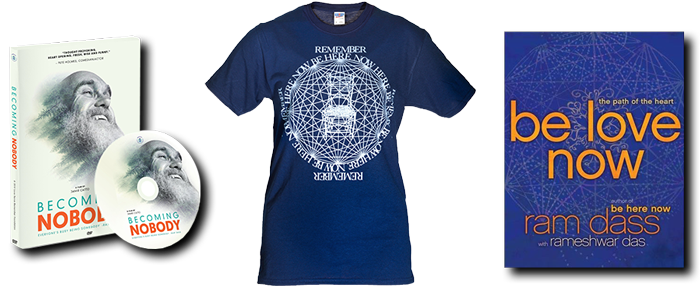The question of whether a being is fully realized or not depends on whether that being is really egoless or just appears to be. If a person still identifies with thought forms or desires, the work is not complete. In perfection there’s no clinging at all.
Perhaps now you begin to see the subtlety of the attachments that must be surrendered. The attachment to experiences, including the experience of God and the ecstasy and rapture of that union, even experiences of omniscience, of omnipresence, of infinite power, the experience of being the One (as opposed to just being One) – these are described in southern Buddhism as jhanas, or temporal absorption states. As long as there’s a trace of an experiencer, there is still an element of self-consciousness, the ego of being the experiencer. If it’s still an experience, it is not the ultimate reality. It’s simple: if you’re having an experience, you know you have to go beyond it. Isn’t it beautiful?
For a perfect being, a Buddha, there’s nobody home. They are completely here and nowhere and everywhere at once. A perfected being is fully in the flow of existence, so there’s no place where they’re not. The paradox of emptiness (sunyata) is that it is really fullness. Egolessness is not nonexistence, but an effulgence of being. Finally there is just function at every level. That’s what Christ referred to when he said, “Had you but faith, you could move mountains.”
With Maharaji there was nobody there; there was just love. I used to see him turn into a mountain, like Shiva, the pure absolute, but then I would feel this intense love. He is unconditional love, but it’s impersonal. It wasn’t him loving me; it was him being love. I turned it into something interpersonal, but it wasn’t.
Love is the emotional color of the soul. Unconditional love is the color of enlightenment, unfettered by personal barriers or distinctions, devoid of ego, yet reflecting the highest Self. It’s like sunlight unfiltered by clouds or the taste of water from the purest spring.
If thou desirest to be a Yogi
Renounce the world.
Dye thy heart deep in His Love.
For real lovers drink the cup of Nothingness, and
Pass away into the Valley of Amazement, in remembrance of Him.
– Shah Latif (1689-1752)
– Excerpt from Be Love Now by Ram Dass & Rameshwar Das








I agree fully with this article, yet wording may I think be, I guess outdated would be the term I would use. Maybe I am wrong but is it not “identity” you speak of when you speak of ego? As in, “ego of being the experiencer” Actually that qouted right there has three identities within it. Ego which most identify as self, being which could be said the (only) real self, and experiencer a combination as both experience. So just so I can understand on a simple level, you actually are saying, “when one is emptied of a single (separate) self identity and accepts the only true identity, which is love (and actually all selves and all that is, in One) . Then you need not go beyond.” Correct?
But then I am thrown by, “Dye thy heart deep in His Love………….., in remembrance of Him.” Because this speaks of a “Him” as well as “His Love”
So it speaks of an identity, just not mine. It is confusing, for “his love” and “Him” are speaking of an experience and an experiencer as well. Just an experiencer called “Him” not by my name or yours. Yet this “Him” is an identity, referred to like an entity, one with one gender as well. Is that because our minds need an object of focus, a label?
I’ve learned with age and perhaps a little wisdom to cut my fellow human beings AND myself a little slack. I read Bhagavad-Gita and I chant; as well, I study Kabbalah. Do I “do” all this stuff cent-percent perfect? No, I do not…back in the 60’s, we were all so caught up in being so elevated and so pure that I would suggest some of us lost the spirit of compassion along the way.